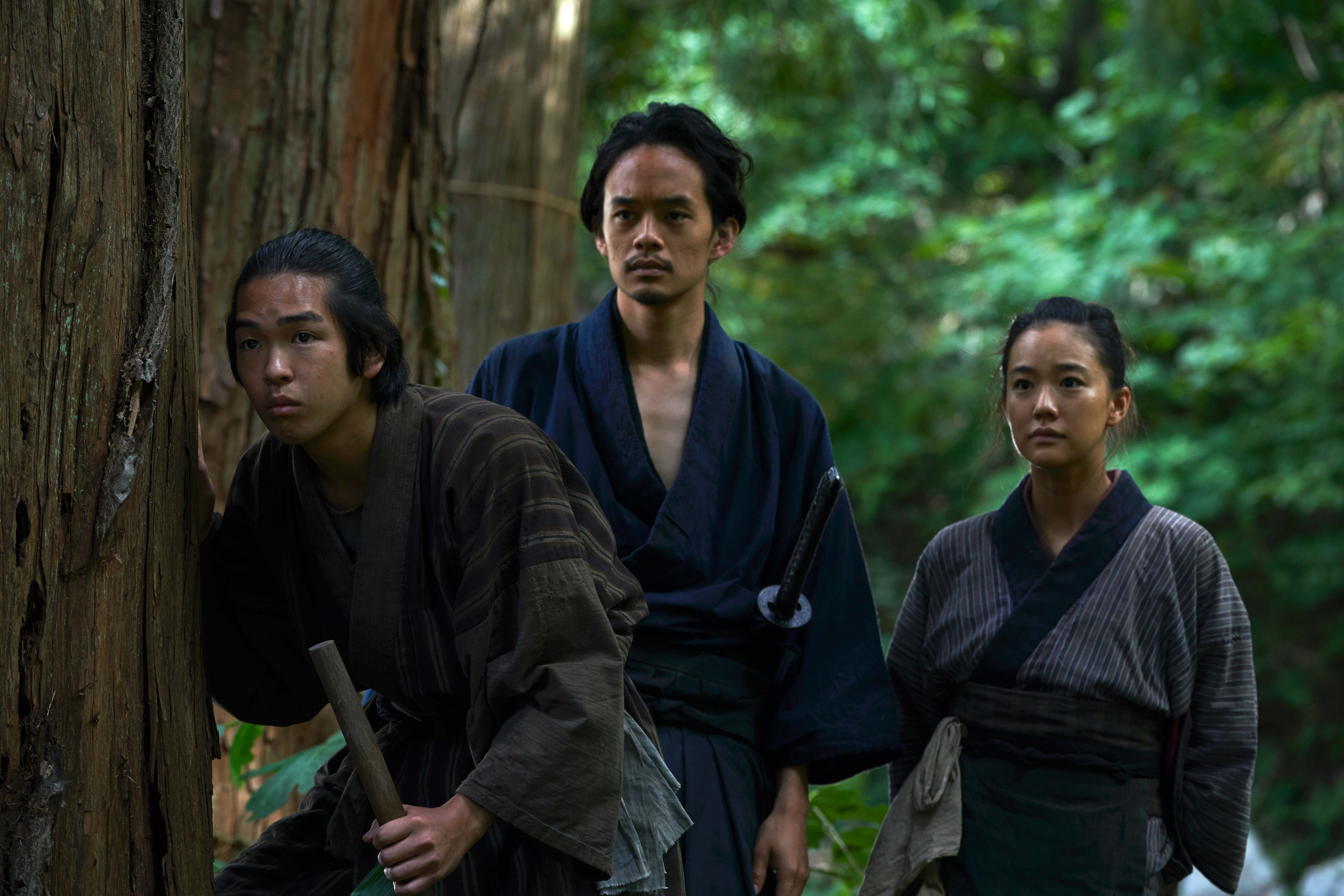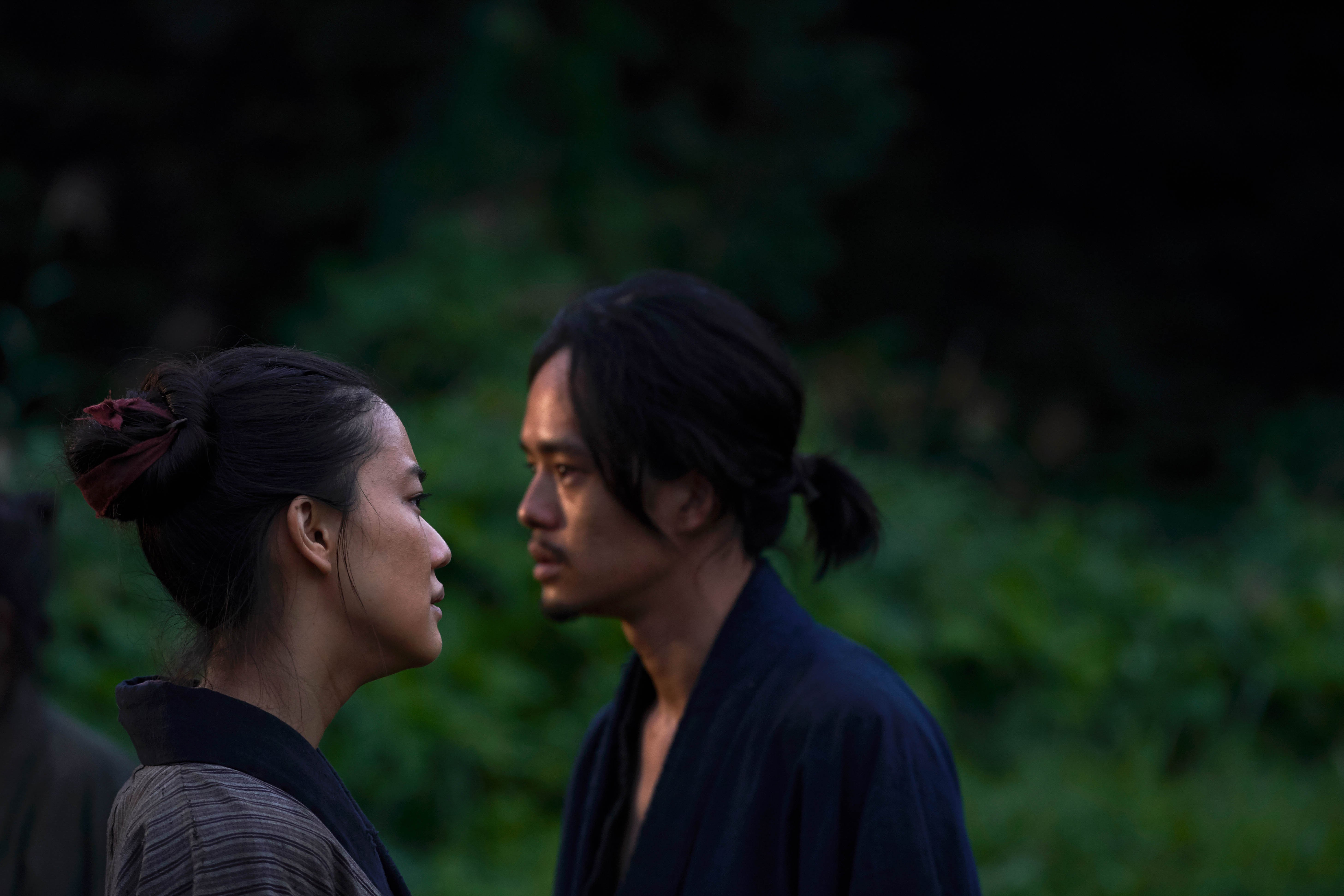Shinya Tsukamoto, the maverick film-maker Quentin Tarantino is obsessed with, burst onto the Japanese cinema scene with his black-and-white, industrial-surrealist body horror, Tetsuo: Iron Man (1989), which is considered as the perfect companion piece to David Lynch’s Eraserhead (1977). Mr. Tsukamoto, in his three plus decade career has mostly helmed independent projects, freed from confirming to the normative disciplines of corporate movie studios. The director has also supported his self-financed film-making attempts by acting in the projects of other film-makers (Ichi the Killer, Shin Godzilla, Silence, etc). Even though Tsukamoto’s films are known for his signature minimalistic cyberpunk aesthetic, he continues to explore complex psycho-sexual themes in a pulse-pounding manner. His latest film, ‘Killing (‘Zan’, 2019) is a raw and hyper-violent samurai drama which contains the familiar Tsukamoto protagonist: a solitary man filled with anguish and engulfed in a hostile atmosphere.
Set in the 19th century Edo period, Killing is a strangely pacifist and revisionist chanbara (sword-fight) film. But Tsukamoto leaves his typical thematic stamps all over it – laced with bloodletting and sexual frustrations – that you definitely can’t mistake it for the heart-warming deconstruction of bushido traditions in Yoji Yamada’s Samurai Trilogy. The jerky, handheld camerawork in the opening scene effuses distinctly raw quality of film-making, unlike the carefully composed shots frequently seen in period dramas. Killing revolves around a young masterless samurai, Mokunoshin Tsuzuki (Sosuke Ikematsu) who spends the days of peacetime by assisting the local farmers.
Similar to Killing (Zan) – Erica 38 [2019]: ‘Japan Cuts’ Review – A Shallow Con
He stays with a family in the farming community, providing swordplay lessons to the family’s impulsive youngster Ichisuke (Ryusei Maeda), although his sister Yu (Yu Aoi) disapproves. Yu also seems to have a crush on Tsuzuki. One day, the trio watches an old yet highly skilled samurai in action. Later, the older swordsman named Jirozaemon Sawamura (Shinya Tsukamoto) witnesses Tsuzuki’s supreme talents when he is engaged in a friendly spar with Ichisuke. Sawamura says he is a ronin like Tsuzuki, and that he is traveling around the area to recruit swordsmen for the upcoming war in Edo (Tokyo). Sawamura not only invites Tsuzuki, but also Ichisuke, remarking that he doesn’t believe in the strict class-divisions. Meanwhile, a band of mercenaries’ arrival at the village scares the farmers.

Tsuzuki, however, doesn’t use his sword to chase them away. To the bafflement of Yu and other villagers, he directs kind words towards them and shares a meal. But when the mercenaries bully Ichisuke, things get out of hand as it provokes a deadly confrontation that claims a lot of lives. Nevertheless, it is Tsuzuki’s psychosomatic illness and Sawamura’s fixation on being the model samurai which pushes the conflict into a carnage.
‘Killing (Zan)‘ once again showcases Tsukamoto’s ability to impart deeper subtext to a work that’s limited, in terms of characters and space. The film explores the violence within us, the nature of killing and its role in the civilized society. Mokunoshin Tsuzuki, though a skilled swordsman, is unable to commit himself to the act of killing. He is pretty much a modern man, believing in sustaining the peace without killer blows. On the other hand, Sawamura believes in the ‘greater good’ and doesn’t care how impetuous his display of violence is. “You’ll soon bleed to death, so reflect on your life”, his calm voice says to the wounded bandits as if the spectacular violence is just a simple act to facilitate reflection.
Also by Shinya Tsukamoto — Kotoko [2011]: A Vicarious Study of a Schizophrenic Paranoid Mother
Tsuzuki’s determination to resist the violent impulse is literalized through his psychological and physical deterioration (as he eventually runs into the deep woods in a delirious manner). The young ronin’s repressed sexual feelings for the farmer’s daughter further adds to the breakdown of his psyche (he takes out his frustrations by furtively masturbating behind the huts). And the act of killing at the end doesn’t just suggest the dismemberment of a human body, but also pronounces that something died within the killer.

Writer/director Shinya Tsukamoto’s choice for handheld camerawork repeatedly indicates that the film is more relevant to the contemporary times. Tsukamoto’s frames move between neatly aligned rice paddies, little farmhouses and dense forests (shot in natural light), similar to the narrative that alternates between social order and hallucinogenic chaos. The pounding rhythmic drum beats compliments the doom-laden atmosphere and forebodes the threat of violence. Tsukamoto’s characterizations are fascinating, especially with the older ronin role he plays. Sawamura initially reminds us of the character Takashi Shimura played in ‘Seven Samurai’ (1954), the benevolent patriarchal figure fighting for the noble cause. But with each blow of the sword, Sawamura proves to be an antithesis of that character; affirming to a code of honor even though it turns his life’s purpose to only be a killing machine.
Overall, Killing (Zan) (80 minutes) is a taut, gripping feature that offers an interesting take on the codes of samurai class. Cult film-maker Tsukamoto, in his own idiosyncratic manner, depicts how violence obliterates one’s own humanity alongside his/her enemies.


